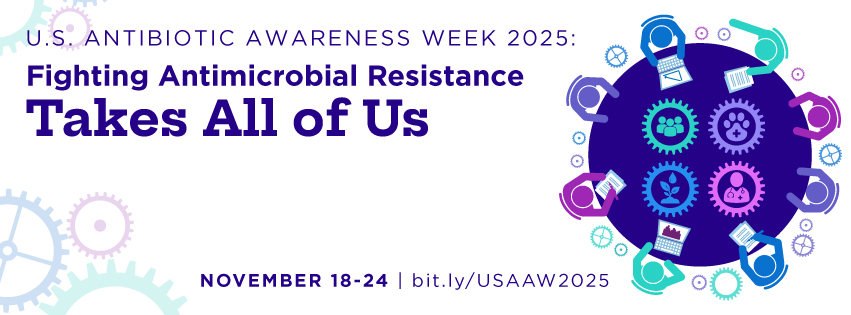Why This Matters
Antibiotics are one of the most powerful tools in modern medicine, but their effectiveness is under threat. Antimicrobial resistance (AMR) is rising globally, and without urgent action, common infections and routine procedures could become life-threatening. Clinicians are uniquely positioned to lead the fight against AMR, not only through prescribing decisions but also through advocacy, education, and system-level change.
Beyond Prescribing: Expanding Your Impact
Stewardship is more than choosing the right antibiotic. It involves shaping a culture of responsible use across healthcare and the community. Here’s how clinicians can make a lasting impact:
- Mentor and Educate
- Teach trainees and colleagues about stewardship principles.
- Incorporate AMR topics into grand rounds and continuing education sessions.
- Advocate for Policy and Resources
- Support institutional investment in stewardship programs.
- Engage in local and national advocacy for AMR research funding and access to diagnostics.
- Participate in Stewardship Committees
- Collaborate with pharmacists, infection preventionists, and microbiologists.
- Help develop protocols for antibiotic time-outs, IV-to-oral switches, and formulary restrictions.
- Leverage Data
- Use prescribing dashboards to monitor trends.
- Share feedback with peers to improve practice patterns.
Patient Education: A Critical Piece
We can change the narrative and belief that antibiotics are a cure-all treatment for any ailment.
- Sample Script:
“Antibiotics are powerful medicines, but they only work for bacterial infections. Taking them when they’re not needed can make future infections harder to treat. Let’s focus on what will help you feel better.”
- Provide clear instructions for symptom relief and when to return for care.
- Share resources like CDC Antibiotic Use and Symptom Relief Guide.
Check out some scholarly activity from our UNMC ID team on strategies for leading the way in antimicrobial stewardship:
- The Intersection of STIs and Antimicrobial Stewardship (Jonathan Ryder, MD)
- Exploration of outpatient stewardship practices and strategies for effective implementation (Jonathan Ryder, MD)
Key Takeaways
- Stewardship is a professional responsibility that extends beyond prescribing.
- Clinicians can lead through education, advocacy, and system-level interventions.
- Every conversation with a patient is an opportunity to promote responsible antibiotic use.
Call to Action:
Join the movement during U.S. Antibiotic Awareness Week. Share your commitment using #USAAW25 and #AntibioticsAware, and explore resources at CDC Antibiotic Awareness Toolkit.
